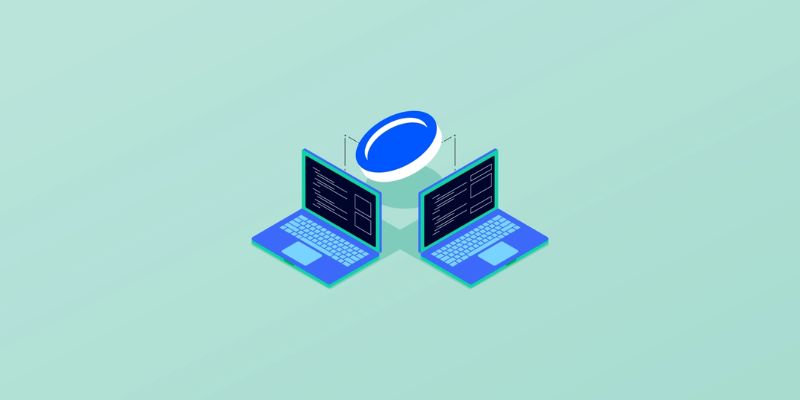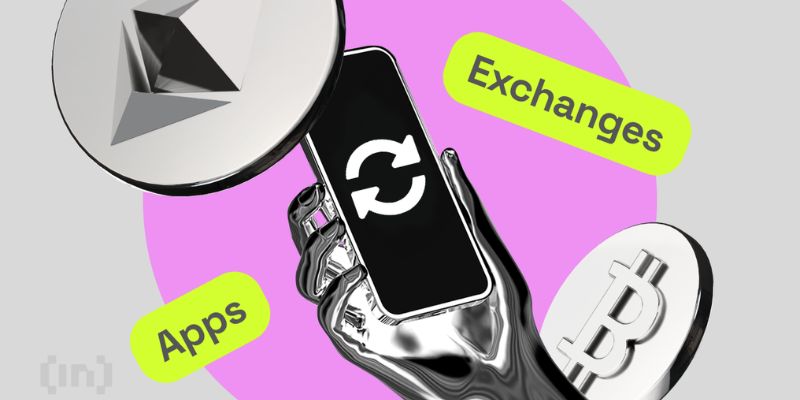Setting up strong passwords and security measures for your crypto wallet isn’t just smart; it’s necessary. Think about it. Your wallet’s defense is the difference between a secure investment and a hacker’s payday. Here, you’ll learn not just to create unbreakable passwords but to fortify your entire wallet security. I’ll guide you through the essentials, then level up to the pro techniques that keep your digital treasure locked tight. Ready? Let’s secure your crypto wallet like a pro.
Understanding Crypto Wallet Security Fundamentals
The Importance of Password Strength for Wallets
Your crypto wallet’s first line of defense is a strong password. Think of it as the sturdy lock on your front door. A weak one is like a door left ajar, inviting trouble. Password strength for wallets is key to keeping your digital money safe. A good password must be tough for others, but easy for you to remember.
Embracing Best Practices for Crypto Passwords
Secure password generation is a skill you can master. Best practices for crypto passwords are here to guide you. Start by using a mix of letters, numbers, and symbols. It’s like making a secret code that only you know. Avoid simple words or dates linked to you. They can be too easy for bad guys to guess.
Next up, say yes to two-factor authentication (2FA) in crypto. This adds another check to make sure it’s really you. Think of it as a guard who double-checks your ID before letting you in.
Seed phrase protection is another must. Your seed phrase is a powerful key that unlocks your wallet. Keep it secret, keep it safe, and never share it with anyone. Write it down on paper and put it somewhere you won’t forget, like a safe. Don’t keep it on a computer or phone where hackers could find it.
Have you heard of password managers for cryptocurrency? They’re like a strongbox for all your passwords and seed phrases. They help you keep track of your secrets and even make new passwords for you.
Storing cryptocurrency safely also means keeping your software updated. New updates can fix holes that hackers might try to sneak through. And just like you’d check your car before a long trip, do security audits for crypto storage. This means checking everything’s tight and secure.
Be smart about where you keep your crypto. A hardware wallet is like a safe inside your safe. It holds your digital money offline, away from online thieves. The benefits of hardware wallets over software are big. They’re harder to break into and they keep your coins cool and safe in cold storage for digital assets.
Biometric security for wallets is getting big too. It uses things like your fingerprint to make sure it’s you. It’s like a lock that only opens to your touch.
Always keep one eye open for tricks and traps. Avoiding phishing attacks in crypto starts with being cautious. If something looks weird or too good to be true, it probably is. Don’t click on links or tell strangers about your crypto.
And here’s a simple but golden rule: always use unique passwords for wallets. Don’t recycle passwords. That’s like using the same key for your house, car, and office. Not safe!
There you have it, friends. Embrace these steps, keep your digital riches locked up tight, and you’ll be the master of your crypto castle.
Advanced Protection Techniques for Your Digital Assets
Implementing Multi-Factor Authentication for Crypto
Your crypto wallet is like a treasure chest. You wouldn’t leave a chest of gold unlocked, right? I’m here to make sure your digital gold stays safe. To start, use multi-factor authentication (MFA). It puts up several barriers for anyone trying to get your crypto. Each barrier needs a unique key. That means even if someone steals one key, they can’t open the chest.
Why is MFA a big deal? It combines something you know (like a password), something you have (like your phone), and something you are (like your fingerprint). So when you log in, entering your password isn’t enough. You’ll also need your phone for a code or your finger for a scan. This step stops many hackers because getting all three keys is tough work.
Always choose MFA when you can. It’s a powerful tool to protect your coins. And it’s not hard to set up. Most wallets walk you through it.
The Role of Seed Phrase Protection and Secure Backup
Ever heard of a seed phrase? It’s a list of words given when you set up your wallet. These words are like the master key to your crypto. If your wallet gets lost or breaks, the seed phrase gets it back. That’s why you must keep it safer than your favorite toy. Treat those words like they can turn to gold because, well, they can.
To protect your seed phrase, write it on paper. Not on your computer. Not on your phone. Paper can’t be hacked. Keep this paper where only you can find it, maybe a safe or a very secret spot. And never, ever tell anyone your seed phrase. Not even your best friend.
Think about making a backup copy, too. Put this copy in a different place, just as safe. This way, if something happens to the first one, you’re still okay. It’s like having a spare tire for your car – it’s smart to have one ready.
Security is serious in the crypto world. Strong passwords, MFA, and safe seed phrases are must-haves. Use them right, and your digital treasure stays in your hands. Remember, in the crypto world, being safe is way better than being sorry.
Technologies Elevating Your Wallet’s Defense Mechanisms
Hardware Wallet Security Features versus Online Wallet Vulnerabilities
Hardware wallets are like personal vaults for your crypto. They store your currency offline, so hackers can’t reach it. When you use a hardware wallet, your private keys—which you need for transactions—never leave the device. This is a great way to keep your crypto safe.
Link electronic cash to the physical world, hardware wallets protect against online dangers. Online, or “hot,” wallets, while convenient, often face risks. They can be targets for cyber thieves. This is because they are always connected to the internet, making them more vulnerable.
Encryption and Biometric Security for Enhanced Protection
Encryption and biometric security are your crypto’s armor. Encryption turns the info on your wallet into a code. It’s like turning a readable book into secret gibberish. Only the person with the key, or password, can read it. Biometric security uses your fingerprint or face scan to lock up your digital cash. It’s just like a spy movie, but it’s real and it’s your crypto wallet’s guard.
Adding another layer, encryption for crypto wallets ensures only you access your funds. It scrambles data, making it unreadable to intruders. Biometric security for wallet adds a personal touch. It uses your unique traits to prevent unauthorized access. This means even if someone gets your password, they still can’t get in without your fingerprint or face scan.
Implementing these high-tech security measures might seem overwhelming. But think about it like this: every extra step you take in securing your wallet is a step a hacker can’t easily take. Strong passwords, two-factor authentication (2FA), and encryptions are your toolkit. Use them to build a fortress around your crypto.
Remember, leaving your digital assets in an online wallet is risky. If that site gets hacked, or the service goes down, so could your investments. That’s why hardware wallets, with their advanced security measures, are a smarter choice.
While we all love the ease of tapping our phones to pay, mobile wallet safety measures can’t always compete with hardware wallets. The key is to balance convenience and security. It’s tempting to keep things simple, but your future self will thank you for taking crypto wallet security measures seriously now.
Don’t worry if encryption talk sounds complex. A lot of this tech works in the background to protect you. What’s important is that you know it’s there, guarding your digital treasure chest. Keep your software updated, use strong, unique passwords for your wallets, and always back up your info. Stay safe, and keep your crypto safer.
Proactive Strategies Against Crypto Security Threats
Avoiding Phishing Attacks and Safe Password Management
Ever got a weird email about your wallet? It could be phishing: bad guys trying to steal. What’s first in fighting this? Strong passwords—they’re like armor for your wallet!
To make a strong password, mix letters, numbers, and symbols. Think “D4!9m$2*”—hard to guess, right? Also, don’t use your birthday or pet’s name. That’s too easy to crack. Create unique passwords for every wallet you have. This keeps all your wallets safe even if one gets in trouble.
Next up: storing your passwords. A password manager keeps them safe and sound. It locks them behind one strong password. So, only you can get to them all. Need a top-tip? Update it! Like your phone’s apps, keep your password manager fresh. This keeps your passwords tough to beat.
Finally, why not double up? Two-factor authentication (2FA) asks for something more than your password. It could be a code from your phone or a fingerprint. It’s like having a secret handshake to get into your wallet. Two steps are better than one, right?
Regular Updates and Security Audits for Optimal Safety
Got your strong passwords and 2FA ready? Awesome! But don’t stop there. You gotta stay sharp and keep everything updated. This means your wallet’s software, your password manager, all of it!
Why update so much? Each update is a new warrior in your security army. They fight off new threats and keep your wallet safe. So when your phone or computer says “Update available,” hit that button fast!
And here’s the big boss move: security audits. Think of them like a check-up for your wallet’s health. They look for weak spots before trouble finds them. Are you sharing passwords? Is your wallet software old? A good audit will spot these risks.
Also, audits help with recovery plans. If things go wrong, like you lose your phone, you’ll have a plan. You can get back to business without losing sleep.
So, remember these three things for your wallet’s safety: strong passwords, regular updates, and routine audits. These are your armor, your sword, and your shield in keeping your crypto coins safe and sound!
We’ve dived deep into keeping your digital coins safe. Strong passwords are your first shield. Pair them with best practices, like unique phrases you won’t forget. Next up, two-factor authentication (2FA) and seed phrases: these are your safety nets. Remember, write down your seed phrase and keep it away from prying eyes.
Hardware wallets give you an edge with their tough security. They outdo online wallets that face constant hacking threats. Touch ID and face scans add even more armor to your crypto treasure chest.
Don’t let clever phishing tricks snag you. Create passwords that are fortresses. Keep them changing, keep them safe. Tech updates and security checks? They’re like tune-ups for your wallet’s wellbeing.
Vigilance is key in the crypto world. Empower yourself with these tools, and you’ll be well on your way to mastering the art of crypto security. Let’s make every digital penny count by shielding it with the might of knowledge and the power of smart technology!
Q&A :
How do I create a strong password for my cryptocurrency wallet?
Creating a strong password for your cryptocurrency wallet is critical for ensuring the safety of your digital assets. A strong password should be long, using a mix of upper and lower case letters, numbers, and special characters. Avoid using easily guessable information like your name, birthday, or common phrases. Consider using a passphrase with random words strung together or a password manager to generate and store a complex password. Regularly updating your password can also enhance security.
What are the best practices for securing my crypto wallet?
Securing your crypto wallet involves several best practices. First, always keep your private keys offline in a secure location and never share them with anyone. Second, use two-factor authentication (2FA) whenever available, as it provides an additional layer of security. Third, keep your software updated, including your wallet and any related applications, to ensure you have the latest security patches. Additionally, be wary of phishing attempts by double-checking URLs and email senders before clicking on links or downloading attachments.
Can two-factor authentication protect my crypto wallet?
Two-factor authentication (2FA) can significantly enhance the security of your crypto wallet. It requires a second form of identification beyond your password, such as a code sent to your mobile device or generated by an authenticator app. This makes it much harder for unauthorized users to gain access, even if they have your password. Ensure that any crypto wallet or exchange service you use offers 2FA, and activate it without delay.
Is it safe to store my crypto wallet backup online?
Storing your crypto wallet backup online can be convenient, but it comes with risks. If you opt for online storage, use encrypted cloud services and enable strong passwords and 2FA. However, offline storage options such as a USB drive, paper wallet, or hardware wallet disconnected from the internet are generally safer. These methods provide protection from online hacks and should be considered for storing backup information, like your recovery seed phrase.
What should I do if my crypto wallet is compromised?
If you suspect your crypto wallet has been compromised, take action immediately. First, transfer your funds to a new wallet with a strong, unique password and new private keys. Contact customer support for the wallet service or exchange if needed. Then, check your devices for malware and ensure your security software is up to date. Change your passwords for any related accounts, enable additional security features like 2FA, and always monitor your accounts for any unusual activity. It’s also advisable to report the incident to relevant authorities or cybersecurity groups.




